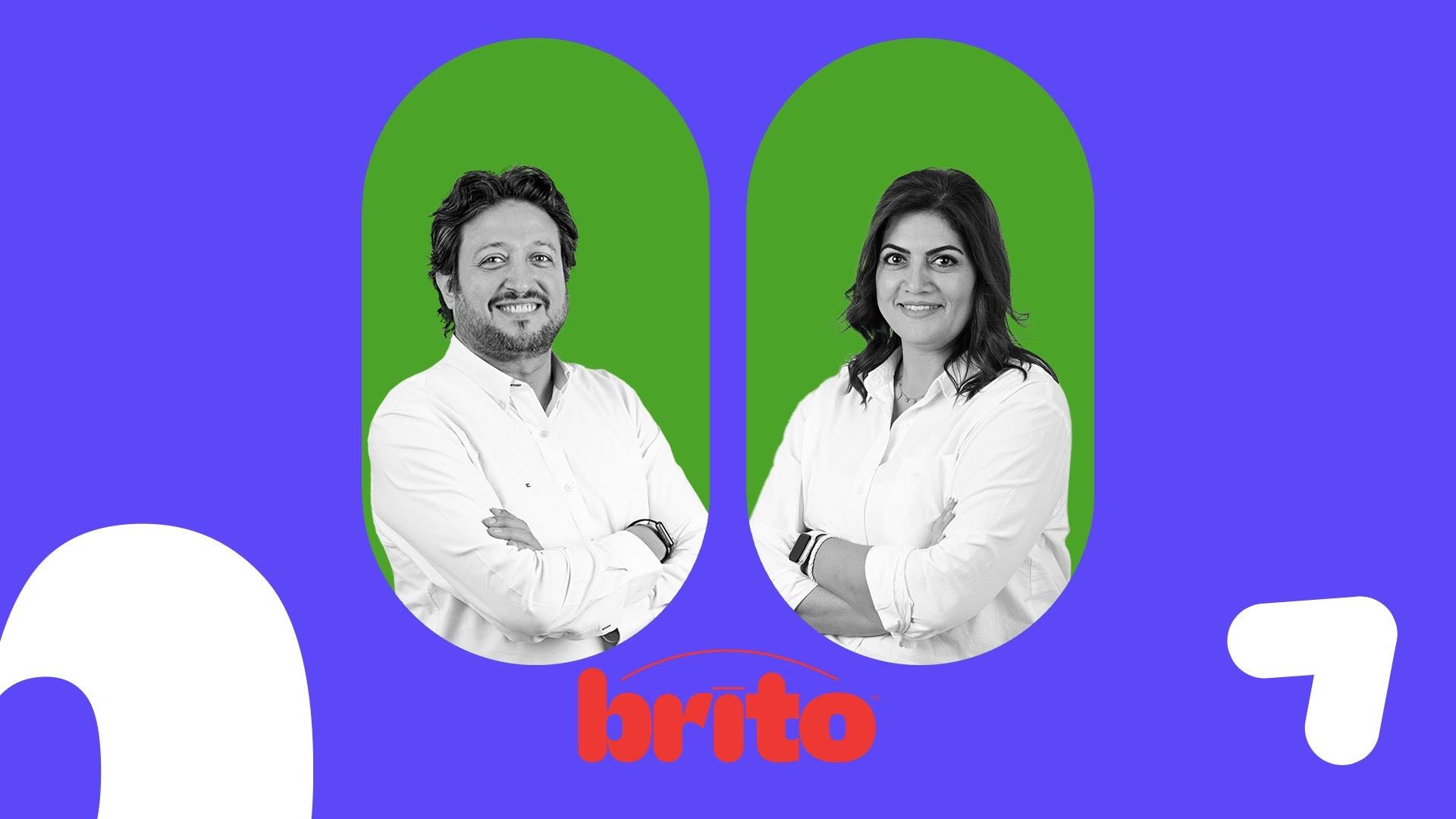Brito joins Egypt’s growing list of cloud kitchens after raising $1.25 million

For Egyptians, ordering food from a local restaurant is nothing novel. The country’s restaurant market is thought to be worth $17 billion annually and while most orders are placed over the phone, online food delivery sales have been on the rise. The steady increase in the local market has led to the emergence of a new crop of cloud kitchens, looking to carve out their niche in the global cloud kitchens sector, set to be valued at $230 billion by 2025 and close to $1 trillion by 2030.
The market boasts different forms of cloud kitchens, with Kitchen as a service (KaaS) remaining the most popular. A recent entrant to the space is Brito, a multi-brand KaaS startup that was launched early this year by Rania Reda and Mo'nes Sadeq.
Brito relies on the “hub and spoke” model to achieve consistency in the quality of food provided by its brand partners. It utilises a high-volume, shared-space commercial kitchen that acts as a hub where food is semi-prepared and then shipped to satellite kitchens, or spokes, scattered across East Cairo to be finished and packaged for delivery.
Using a newly-raised $1.25 million round, the startup is looking to double down on its kitchen technology, grow its delivery fleet as well as expand its presence in Cairo.
"Over the past two decades, I have been working on developing software systems for F&B brands, and found out that there are still a lot of gaps in the foodservice sector due to the ever changing consumer behavior, and these gaps only became more visible with the Covid-19 crisis,” says Reda.
As the sharing economy continues to take hold in multiple sectors in Egypt, F&B brands have largely fallen behind according to Reda.
“The cloud kitchens model stood as a part of the sharing economy, defined by the utilisation of existing resources. We started Brito so we can reshape the industry by making it more profitable for restaurants to open up and expand using technology-led tools to improve scalability," she adds.
The industry, however, remains at the early stages of development due to the relatively low volume of online food delivery sales when compared to offline and delivery logistics challenges such as traffic congestion as well as the difficulty of obtaining a licence, which has led to a number of cloud kitchens to operate out of locations that may not be appropriate to run commercial kitchens.
Similar to other cloud kitchens operators, Brito is not only relying on deliveries coming through online channels; it also offers a hotline number to receive orders over the phone, which account for the majority of orders placed.
Client acquisition
Brito started off as a platform, serving only the corporation segment before changing tracks to become both a consumer as well as a business-oriented model. The startup now counts 72 local and international brands and looks to onboard 280 in the next four years.
As the founders put it, one of the biggest challenges facing their business is the lack of awareness from the restaurant side.
"Many restaurant owners believe in the economic viability of having a dine-in venue and physical footfall. Conversely, they can generate more sales through delivery," says Sadeq who claims that delivery orders makes up between 35 to 60 per cent of total restaurant sales in Egypt.
The country’s economic situation has become increasingly challenging for restaurants as a result of a series of pound devaluations and an ensuing decline in consumer purchasing power. The Brito founders believe cloud kitchens can help local food brands handle better units of economics in terms of rental and labour costs and raw materials while offering more flexibility to experiment with their menu and adapt to shifting trends.
"In the restaurant industry, the margins are already super slim. Bringing overall costs down by one or two per cent makes a huge difference in terms of economies of scale. The added value of cloud kitchens has never been more pronounced in such trying times, especially the tech-led ones, because 50-60 per cent of cloud kitchen operations should be automated to ensure efficiency. At Brito, we also help our clients get better deals with food delivery aggregators and realise more revenues," says Sadeq.
But, as the startup continues to build a moat in the food delivery scene by attracting global brands, the very same confluence of weakening pound and import restrictions makes it a harder mission for it to achieve.
"One of the services we provide is that we help global brands expand to Egypt and take advantage of its booming delivery market. We onboarded a couple of Jordanian brands already, However, with the recent drops in pound valuation and import restrictions still in place, it is hard to attract and retain those brands," Sadeq explains.
"For example, after the recent devaluation, we had to raise the loyalty fees to attract global businesses. So, this has put bigger pressure on us to provide real monetary value in order to have them onboard," he adds.


